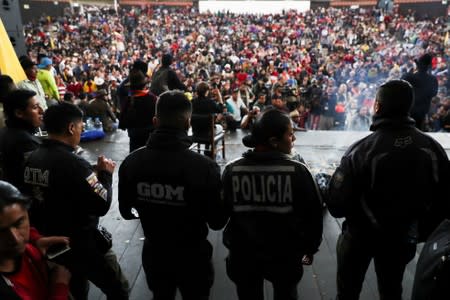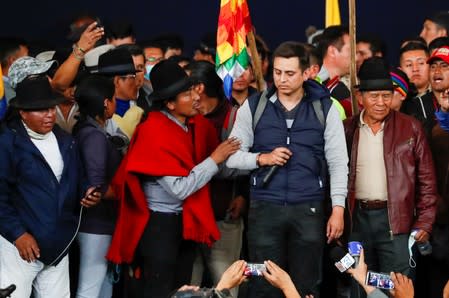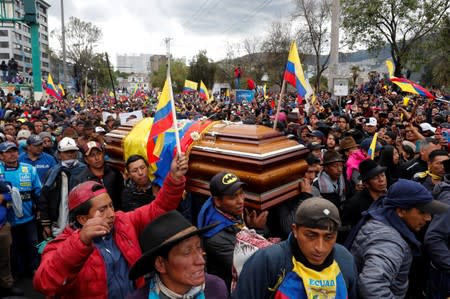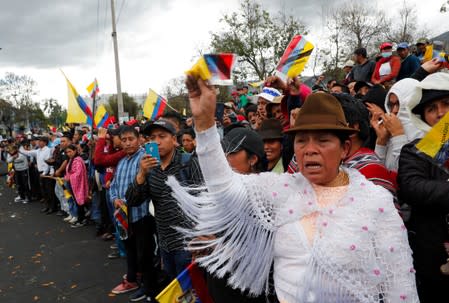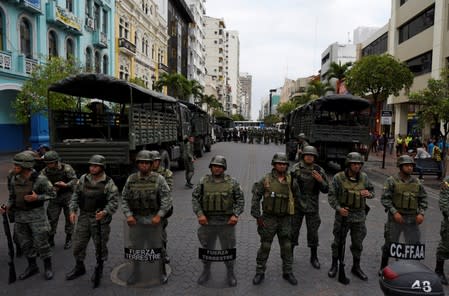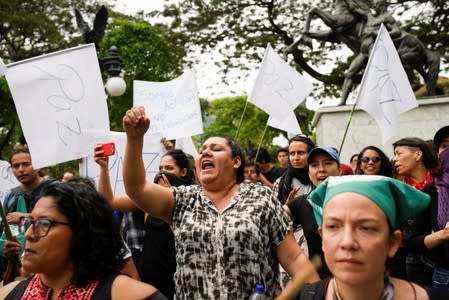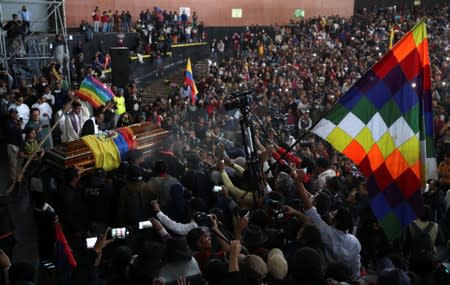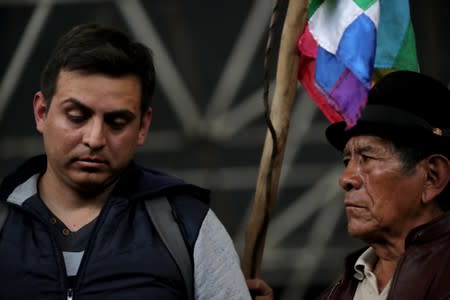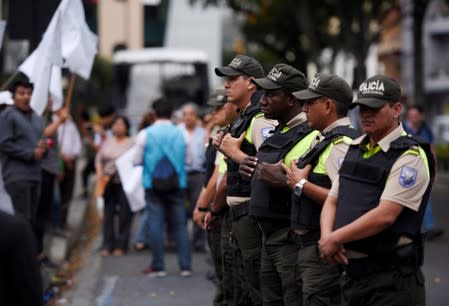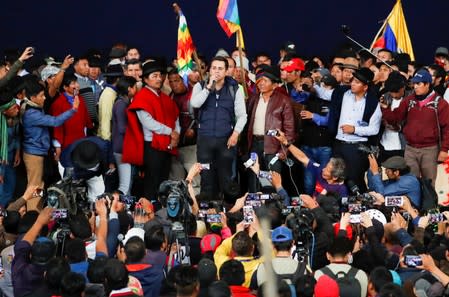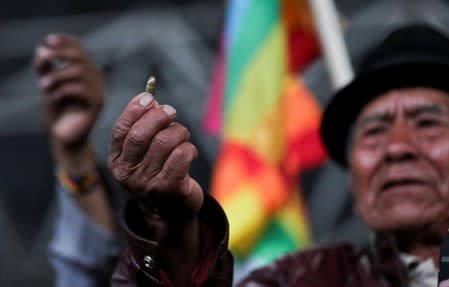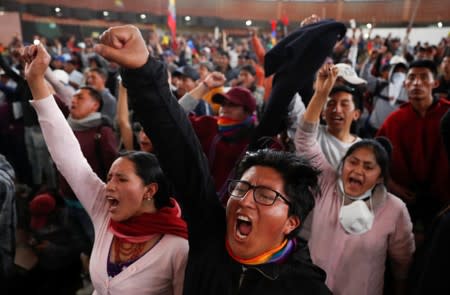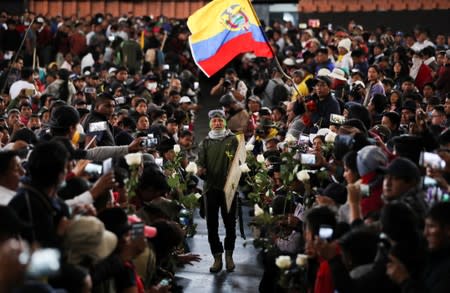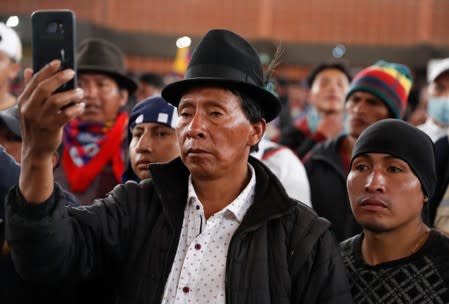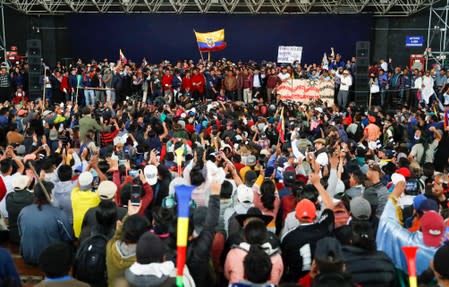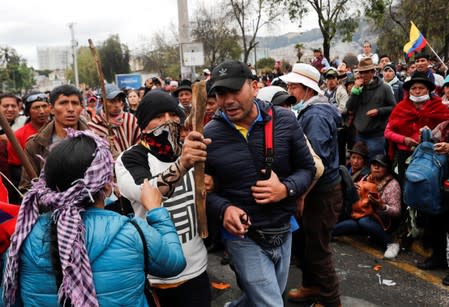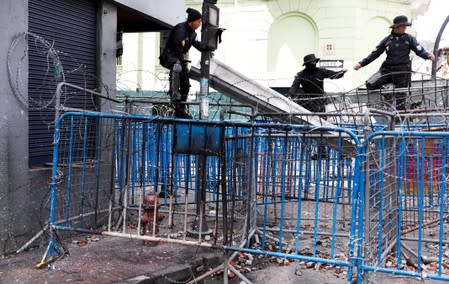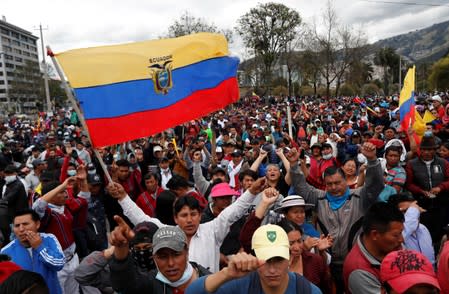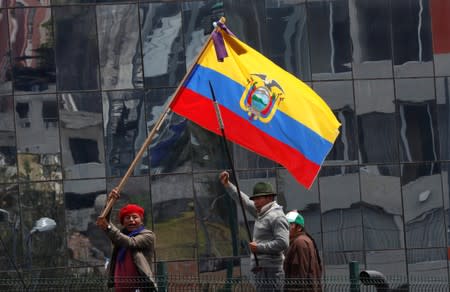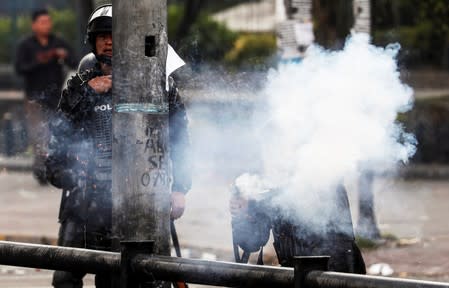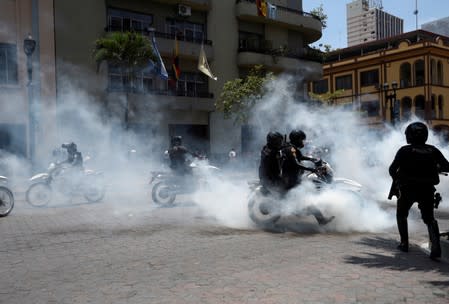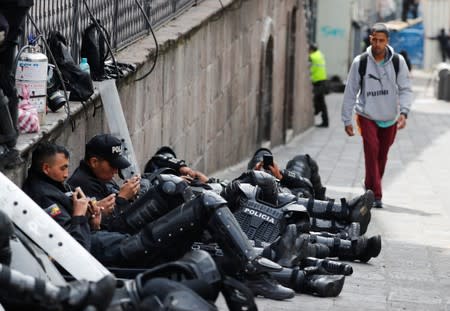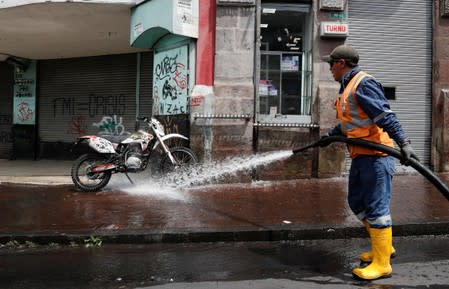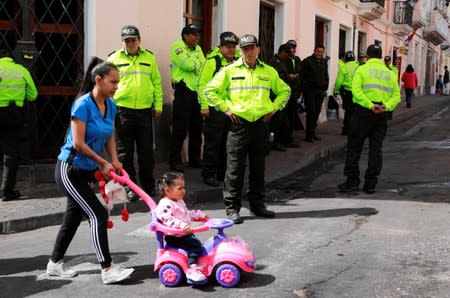Native Ecuadoreans detain, then free, police in anti-austerity conflict
By Henry Romero and Carlos Garcia Rawlins
QUITO (Reuters) - Indigenous leaders in Ecuador freed eight police officers after parading them before an angry crowd for several hours in retribution for a government crackdown on anti-austerity protests that have shaken President Lenin Moreno's government.
Protesters detained the officers early on Thursday and held them at a cultural center in Quito that indigenous groups have used as a base in the highland capital.
Looking scared, the officers were asked to take off their bullet proof vests and boots, according to Reuters' witnesses.
Complaining about a lack of media coverage of police violence, indigenous leaders ordered TV journalists onto the stage and demanded that broadcasters show the scene live. At least three private channels complied.
"We're going to radicalize (the protests) with more force," Jaime Vargas, head of indigenous group Conaie, told the cheering crowd. "I've just ordered our partners in the Amazon to close all oil wells."
It was a sharp escalation of week-long protests against Moreno's decision to cut fuel subsidies as part of his efforts to reduce the fiscal deficit and make good on commitments in a loan deal with the International Monetary Fund (IMF).
Authorities confirmed the officers were released after the body of an indigenous protester, who was killed in clashes on Wednesday, was taken to the assembly.
The protester, a man from the highland province of Cotopaxi, was one of four fatalities related to the unrest. Protesters mourned him in a massive street demonstration, with some of the police officers helping to carry his coffin among the crowds.
Moreno has called for calm.
"We've said 'yes' to dialogue, but first there must be peace," Moreno told Colombian broadcaster RCN late on Thursday.
'REPRESSION'
The unrest is the latest flashpoint in Latin America over unpopular structural economic reforms. Argentine President Mauricio Macri was trounced in an August primary vote amid stiff opposition to an IMF deal he signed last year.
Since last week, security forces in Ecuador have turned tear gas and water cannons on protesters who have set up burning barricades and hurled stones at police lines.
Interior Minister Maria Paula Romo apologized after police fired tear gas in safe areas for protesters. She said authorities have faced extreme violence from some, including about 600 people whom she said swarmed a military barracks late on Wednesday, wounding several military officers.
"I want to point out how unusual and atypical this is," Romo told a news conference. "There are sectors that are seeking out more violence."
The unrest has already slashed the Andean nation's oil production by 520,000 barrels and forced the government to relocate to the coastal city of Guayaquil.
More than 900 people have been arrested, though most have been released due to lack of evidence, according to the office of the ombudsman, a state institution that monitors conflicts.
More than 500 have been wounded, it said.
The Red Cross in Ecuador said the violence was so bad it had depleted its blood bank. It called on Twitter for donations.
"We're not used to this kind of repression," Ombudsman Freddy Carrion told Reuters by phone, blaming a state of emergency the government has imposed for fanning tensions.
"It didn't solve anything. It actually created a deeper spiral of violence on both sides."
Protests erupted in the nation of 17 million people last week when truck drivers took to the streets over fuel price rises. But indigenous protesters have now taken the lead, with many walking from surrounding provinces to Quito.
Moreno, 66, who succeeded leftist leader Rafael Correa in 2017, has repeatedly refused to restore the fuel subsidies, defending their elimination as part of overdue efforts to clean up finances.
Past indigenous protests have brought down presidents in Ecuador, but Moreno says he is not quitting.
Without offering evidence, Moreno has accused Correa and Venezuelan President Nicolas Maduro of plotting to oust him.
Correa and Maduro have laughed off those accusations.
"The guilty one is on the International Monetary Fund. Savage capitalism," Maduro said in a speech in Caracas on Thursday.
(This story refiles to correct headline spelling of "Ecuadoreans", byline)
(Additional Reporting by Ivan Alvarado, Alexandra Valencia, Ignacio Munoz, Cristina Munoz, Daniel Tapia and Alberto Fajardo in Quito and Mayela Armas in Caracas; Writing by Mitra Taj; Editing by Andrew Cawthorne and Cynthia Osterman)

 Yahoo Finance
Yahoo Finance 